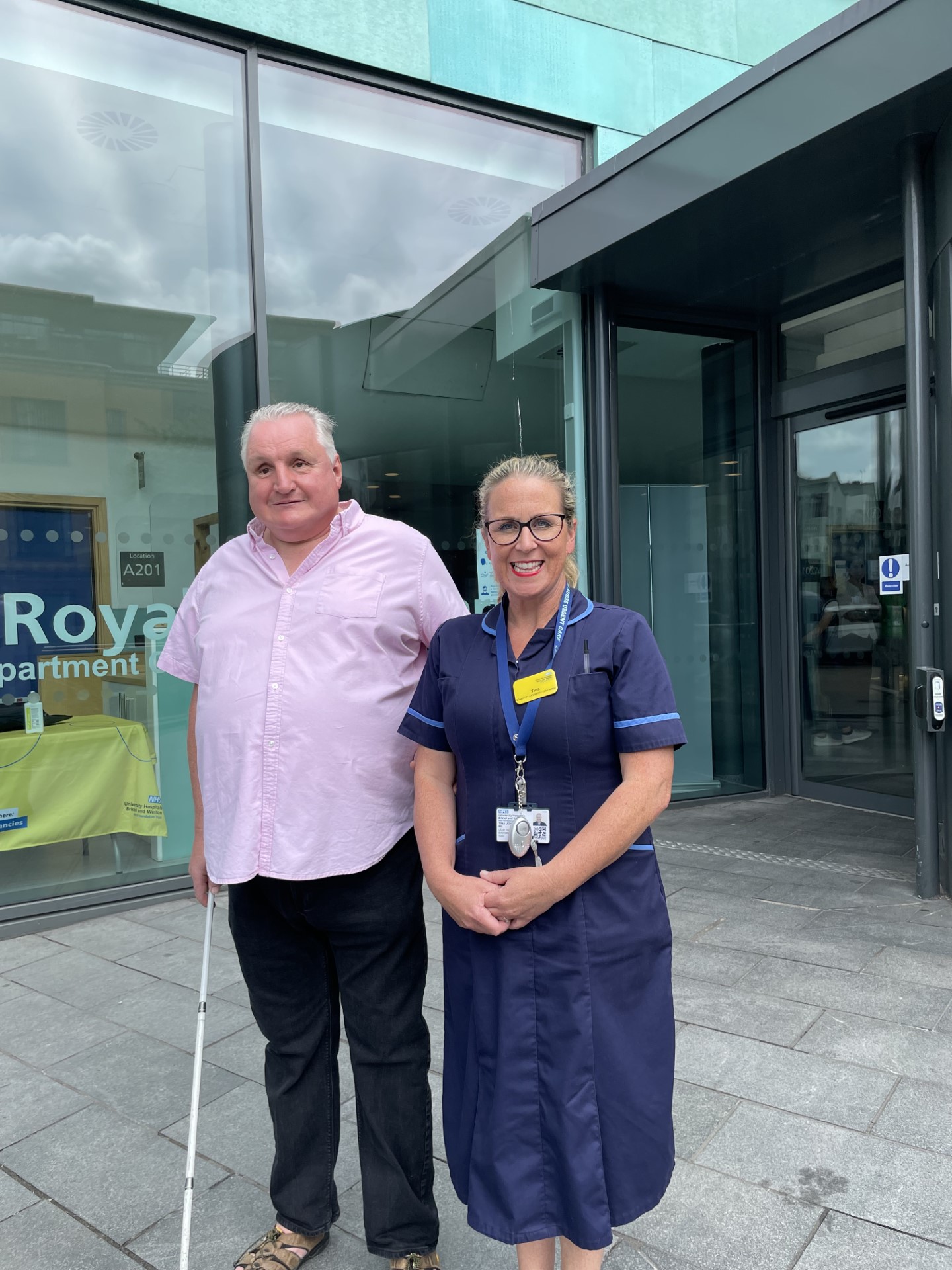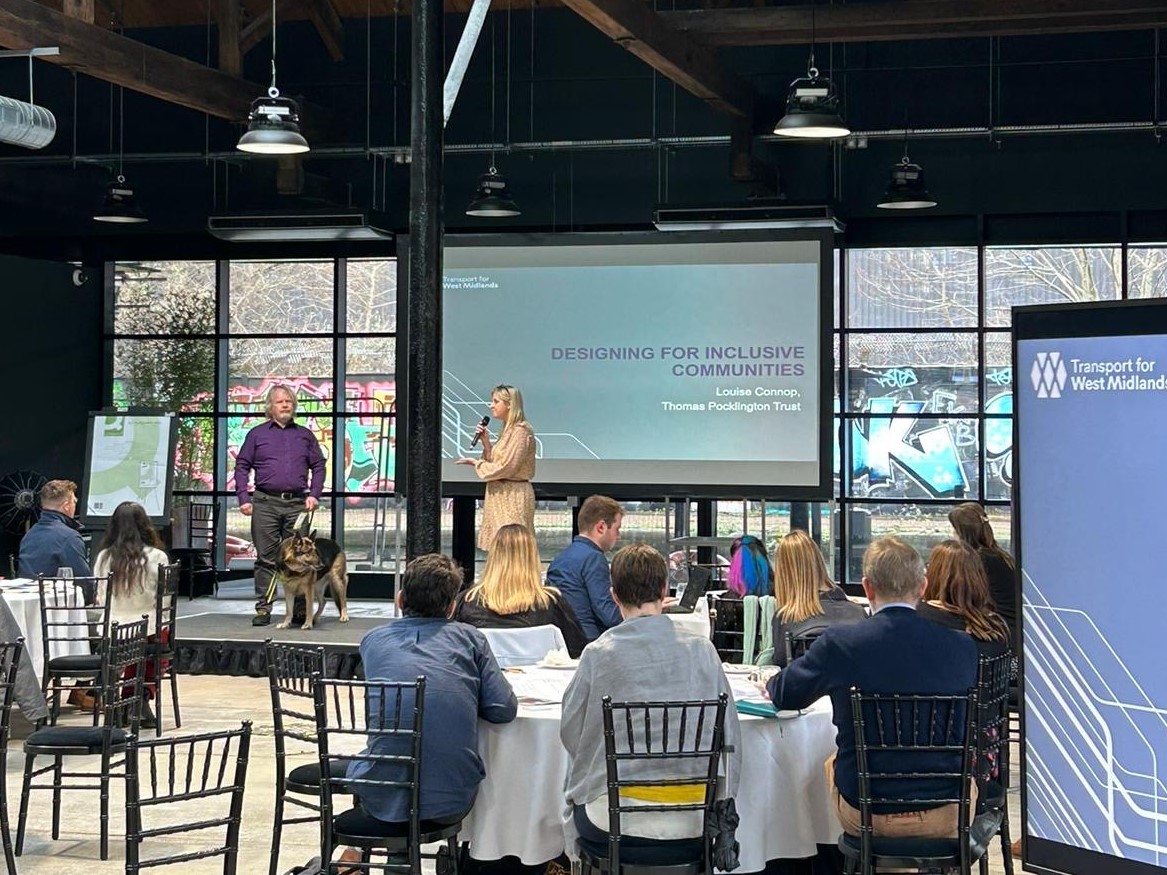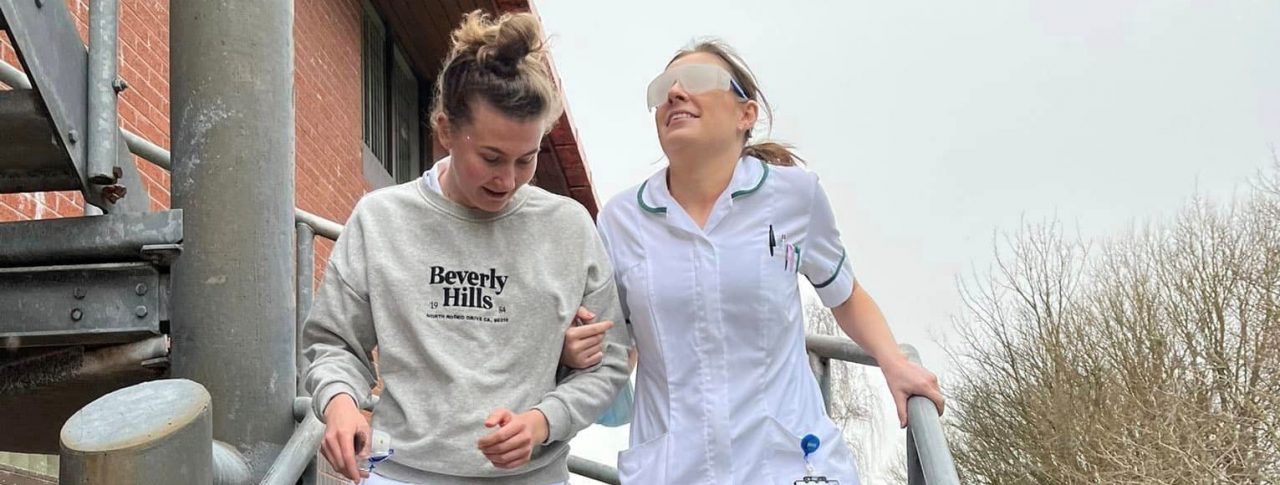Professionals celebrate influence of SLCs as part of National Co-Production Week
Health, social care and wider partners from across the country are celebrating the influence of Sight Loss Councils as part of National Co-Production Week.
National Co-Production Week, led by the Social Care Institute for Excellence, runs from 3 July. It aims to celebrate and promote the benefits of co-production, and share good practice.
What is co-production?
Co-production describes an equal partnership between services and people who use them, to inform their delivery and design. The Social Care Institute for Excellence describes it as a real chance to transform social care and health provision to a model that offers people real choice and control.
How are Sight Loss Councils involved?
Sight Loss Councils (SLCs), funded by Thomas Pocklington Trust, are regional groups led by blind and partially sighted volunteer members. Together, we use our lived experience to work with businesses and service providers to increase the accessibility of their services.
This is across a range of priority areas including accessible public transport, street safety, heath, arts and culture, sports and leisure, and retail.
For healthcare, together with Thomas Pocklington Trust, we initiated a national campaign to make health accessible, raise awareness of the Accessible Information Standard and influence its implementation.
Regionally, Sight Loss Councils are also currently prioritising health in a number of areas across England, including in the West Midlands, York and West of England, to influence service delivery and design. Examples of regional activity include:
• raising awareness of the Accessible Information Standard and influencing its implementation locally and nationally
• working with health providers in select regions to increase the accessibility of their services and inform future policy
• providing vision awareness sessions and informing e-learning programmes for staff
• sharing lived experience of sight loss at strategic partnerships to inform policy and support the training of eye health professionals
• campaigning for home test kits being made accessible for blind and partially sighted people
• taking part in research by Anglia Ruskin University about perceptions of co-production, it’s benefits and any barriers to taking part in co-production.
Partner feedback
With our partners, we all work towards the same goal to make health accessible for all. Here’s some feedback shared by partners for National Co-Production Week:
Ann O’Malley, Patient Communications and Engagement Lead at the North Bristol NHS Trust (NBT):
“Bristol Sight Loss Council’s support for NBT has been invaluable. The Sight Loss Council volunteers have supported us in embedding the Accessible Information Standard and raising awareness across the Trust. Their commitment, passion and support has already led to significant change, and we are looking forward to continuing the journey to improving access. Thank you to Bristol Sight Loss Council.
Tina Johnson, Lead nurse for the Bristol Royal Infirmary (BRI) Emergency Department and the Medical Assessment zone, said:
“The team in the BRI emergency department recognise the extremely important work that Bristol Sight Loss Council is undertaking and incredibly grateful for your support and guidance – working with our patient experience team to improve the accessibility of emergency services for blind and partially sighted people.”

Alun Davies, Engagement Manager for South West England, with Tina Johnson, Lead nurse for the BRI Emergency Department and the Medical Assessment zone. They are stood outside the Emergency Department.
Mark Stevens, Assistant General Manager, Bristol Eye Hospital:
“The Bristol Eye Hospital (BEH) management team has had the pleasure of working with the Sight Loss Council for several years. Working in partnership has allowed the service to collaborate with service users who have lived experiences of attending ophthalmology services at UHBW.
“The Sight Loss Council helped to design and develop an e-learning module. This aims to show BEH’s patient-facing staff how they can contribute to improving the accessibility and experience for blind and partially sighted patients using our service at the hospital and its outreach sites. Additionally, the Sight Loss Council has supported patient experience reviews of our outpatients and ward services.
“We will be certain to include the Sight Loss Council when seeking to develop any new or existing services. This is to ensure that we engage with people who have lived experiences. This will ensure we are able to design and implement high quality services for all of our patients.”
Alex Evans, Patient Experience and Engagement Lead, Birmingham Community Healthcare NHS FT:
“Working with Thomas Pocklington Trust and Sight Loss Councils has been a way to listen to experiences of blind and partially sighted patients. They have a welcoming and focussed approach which has inclusion at its core. I hope we can continue to work in partnership to improve outcomes.
Mark Fosbrook, Health improvement Disability Manager, West Midlands Combined Authority:
“Our ambition to be an exemplar region for disabled people and those with long term health conditions has been built on co-production and developing a robust and credible voice. Thomas Pocklington Trust and Sight Loss Councils have worked alongside us as we build the framework for this ambition. This relationship is really valued and helps ensure we continue to build and co-produce this vision with wide reach and a person-centered approach.

Louise Connop, Senior Engagement Manager for Central England, presenting on stage with Steve, Birmingham SLC member, about designing services for inclusive communities.
Julie Harrison, Commissioning Manager – Strategy & Integration, at Birmingham City Council Adult Social Care:
“Involvement of Sight Loss Councils in co-producing our plans for future Technology Enabled Care services ensures we will deliver outcomes that matter to people. It has also provided engaging case studies for us on the difference that technology can make to a person’s life.”
Kerry O’Hara, Associate Director, Clinical Programmes, NHS Gloucestershire Integrated Care Board, said about Gloucestershire Sight Loss Council’s involvement in their work:
“Gloucestershire has a long history of partnership working in eye health and this includes people with lived experience. Often there are more people with lived experience in the meetings than any one group of professionals. It isn’t about creating an equal voice but an environment where people with lived experience can propose thoughts, challenge ideas and push for innovative solutions and feel comfortable to do that.
“I would hope people feel this is what we have created in Gloucestershire and these relationships have been built and sustained over a period of time. As an eye health transformation group, I believe it makes us strive for better, breaks down organisational boundaries and ensures we are creating innovative services with people with lived experience.”
Anne Eyre, Chief Executive Officer at Sight Concern Worcestershire, added:
“Sight Concern Worcestershire is proud to have worked with Thomas Pocklington Trust to set up a much-needed Sight Loss Council in the area. We love welcoming members to our centre for their meetings and hearing the Council’s plans for improving, challenging and campaigning on behalf of people with a vision impairment in Worcestershire.”
Learn more about our work to make health accessible
Stay in the know
If you want to stay up to date with news from the Sight Loss Councils, sign up to our mailing list.
Publication date: 03 July 2023

